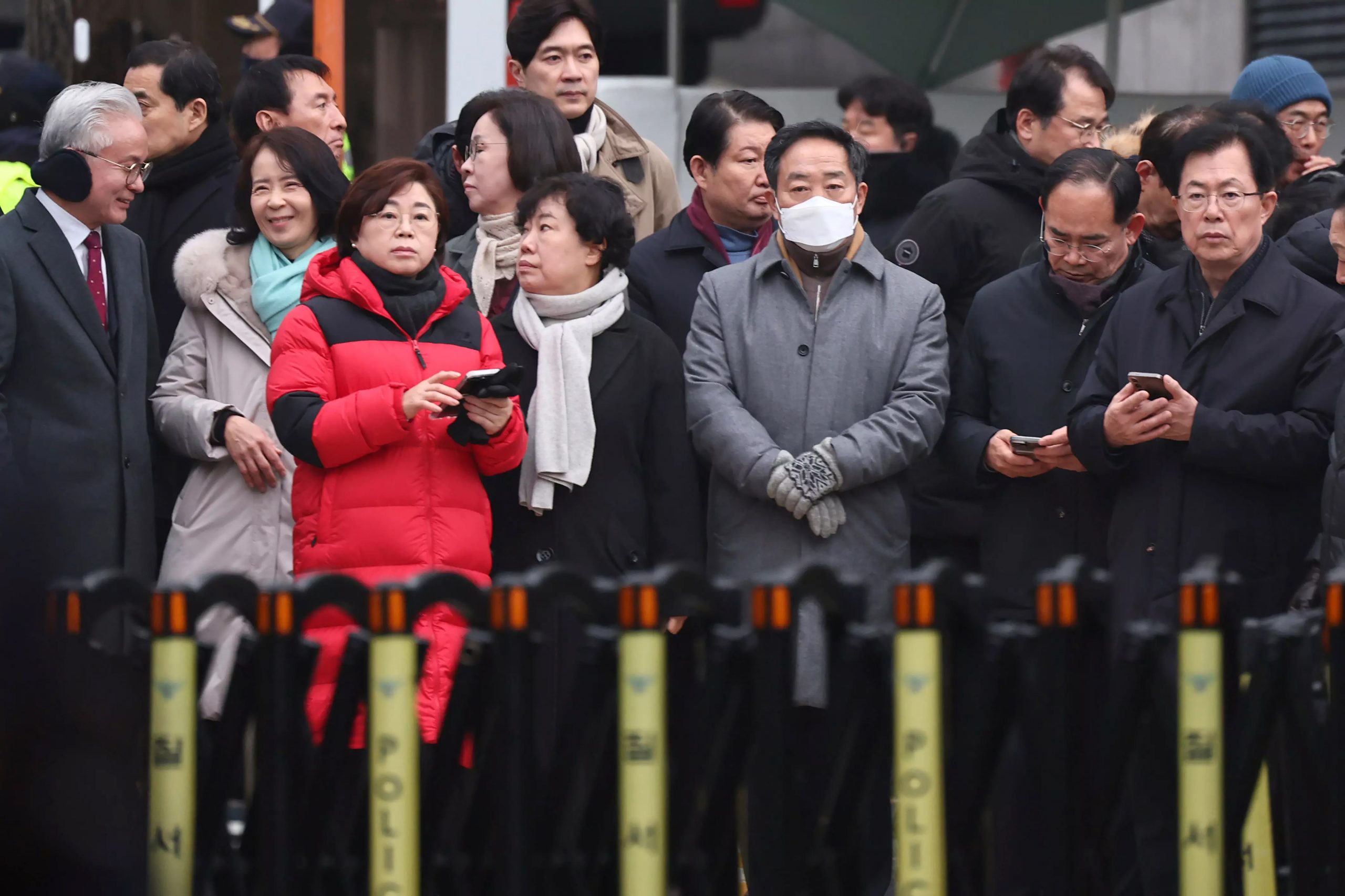SEOUL, Jan 6: The anti-corruption agency of South Korea has urged the police to take the lead in efforts to detain the impeached President Yoon Suk Yeol after their investigators were unsuccessful in taking him into custody following a standoff with the presidential security service last week.
Both the agency and police confirmed the discussions on Monday, just hours before Yoon’s one-week detention warrant was set to expire.
Following Yoon’s refusal to be interrogated regarding his controversial martial law decree from December 3, the Seoul Western District Court issued a detention warrant for him and a separate search warrant for his home last Tuesday. However, acting on these warrants has proven challenging while Yoon remains at his official residence.
Yoon has characterized his power acquisition as a vital measure to govern effectively against a liberal opposition that is obstructing his agenda with its legislative majority, pledging to “fight to the end” against attempts to remove him. Though martial law was only enforced for a few hours, its implications have drastically unsettled South Korea’s political landscape, diplomatic relations, and financial markets while exposing the delicate state of its democracy amid societal polarization.
According to police, the Corruption Investigation Office for High-Ranking Officials is expected to apply for a new court warrant to prolong the period for Yoon’s detention. It remains uncertain whether the agency will make another attempt to detain Yoon before the midnight deadline on Monday.
The anti-corruption agency has faced scrutiny regarding its effectiveness after failing to detain Yoon on Friday, while the police may be in a position to mount a more assertive effort to secure his detention.
Yoon’s legal representatives contended that the agency’s decision to pass the execution of the detention warrant to the police is unlawful, arguing that there are no legal grounds for transferring parts of an investigation to another agency. Although Yoon’s lawyers filed an objection to the warrants against him on Thursday, the Seoul Western District Court dismissed this challenge on Sunday.
On Monday, Yoon’s legal team filed complaints against the chief prosecutor of the anti-corruption agency, Oh Dong-woon, as well as six other anti-corruption and police officials for allegedly orchestrating an illegal attempt to detain Yoon on Friday.
Additionally, the lawyers lodged complaints against the acting national police chief, the acting defense minister, and two Seoul police officials for disregarding a request from the presidential security service for extra support to thwart the detention attempt. They also intend to file complaints against around 150 investigators from the anti-corruption agency and police involved in the failed detention effort.
The anti-corruption agency, collaborating with police and military investigators, has been contemplating charges of rebellion after Yoon declared martial law and sent military forces to encircle the National Assembly. Legislators who managed to bypass the blockade later voted to lift the martial law.
Following Yoon’s impeachment on December 14 by the opposition-led National Assembly, which accused him of rebellion, his powers have been suspended, and the decision on his future now rests with the Constitutional Court, which is deliberating whether to formally dismiss or reinstate Yoon.
Dozens of anti-corruption investigators and accompanying police attempted to detain Yoon on Friday but withdrew after a more than five-hour tense standoff with his security detail.
After circumventing a military unit securing the residence, the investigators and police got to within 200 meters (approximately 218 yards) of Yoon’s residential building but were halted by a blockade of around ten vehicles and roughly 200 members of the presidential security forces and soldiers. The agency noted that it was unable to visually ascertain whether Yoon was present in the residence.
The agency has called on the acting leader, Deputy Prime Minister Choi Sang-mok, to direct the presidential security service to adhere to their order for executing the detention warrant. Choi has not yet publicly addressed the issue.
In a video message on Sunday, Park Jong-joon, head of the presidential security service, responded to criticism that his agency has become Yoon’s personal militia, asserting its legal duty to protect the president. Park instructed his personnel to avoid violence during the standoff on Friday and urged the anti-corruption agency and police to adjust their strategy.
Park and his deputy ignored summonses from the police on Saturday, which sought to question them over alleged obstruction of official duty related to Friday’s events. Over the weekend, members of the presidential security service were observed installing barbed wire near the entrance and along the hills leading to Yoon’s residence, possibly in anticipation of another detention attempt.
Yoon’s legal team contends that the detention and search warrants against him cannot be enforced at his residence due to a law safeguarding locations linked to military secrets from being searched without the consent of the person in charge – in this case, Yoon. They also argue that the anti-corruption office lacks the legal jurisdiction to investigate rebellion charges.
Hundreds of South Koreans have gathered near Yoon’s residence for hours into early Monday, using silver-coated mats for warmth against the bitter cold. This marked their second consecutive night of protests, with demonstrators demanding his resignation and arrest. (AP)


Leave a Reply